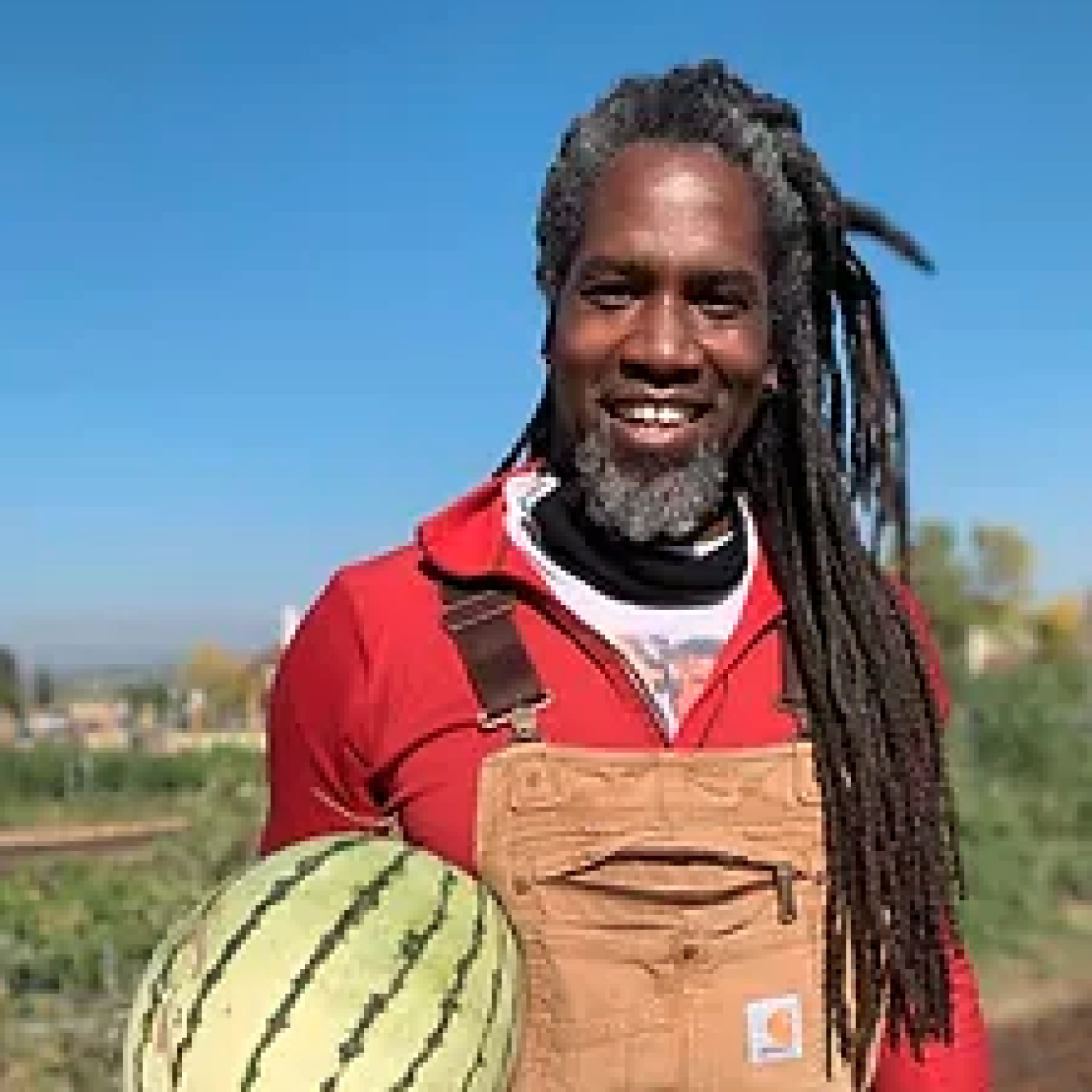Celebrating Black History Month through the Lens of Environmental Justice: Spotlight interview with Damien Thompson

"Dismantling barriers and placing marginalized communities at the forefront of agricultural and cultural diversity is not just our mission; it's our imperative," declares Damien Thompson, co-founder of FrontLine Farming and the Sustainable Food Systems Specialization Lead at CU Boulder's Masters of the Environment (MENV) Graduate Program.
Thompson's commitment to equity and sustainability is evident in his role at FrontLine Farming, where he has been instrumental in establishing leadership opportunities and enhancing access for women and people of color. Dr. Thompson's work adds to the efforts of other pioneers in the Environmental Justice movement. His work, both at CU Boulder and as an advocate for food and farmers, reflects a dedication to actionable change within the realm of sustainable agriculture.
Q & A with Damien Thompson: Navigating Sustainable Careers
In a recent interview, Thompson provided insight into his responsibilities as the Sustainable Food Systems Specialization Lead. "I want to make sure students have a basic understanding of the food system and its scope," he emphasizes. "We talk about policy, culture, and economics, ensuring students comprehend the complexity of food systems and grapple with that."
His journey into this field, rooted in Anthropology and Sociology, began with an early concern for the environment. Thompson's dedication led him to advocate for food access in Washington D.C. and explore issues of peak oil and climate change in Denver. Reflecting on his family's history, he shares, "I learned a lot about cultural resilience from looking at the history of my family and what they went through as black people in the 1930s and 1940s as independent farmers."
When discussing values crucial to his work, Thompson emphasizes self-motivation. "If I am waiting on 'we' to do anything, then I am going to be waiting forever," he asserts. "Once you have the recognition of the issues and the knowledge, you have to start getting to work. In the best ways that you can, when you can, you have to show up and be motivated to do the work, intrinsically motivated from within yourself."
Regarding sustainability, Thompson's advice is concise yet impactful: "Grow your own food." This call to action underscores his belief that cultivating self-sufficiency is a key step toward breaking dependency on existing systems.
In Damien Thompson, CU Boulder has a dedicated leader whose words and actions align in the pursuit of equity and sustainability in food systems. As we honor his contributions during Black History Month, let us collectively appreciate and support his vision for a more just and sustainable future.
Environmental Justice Pioneers: Honoring Champions of the Earth
As we celebrate Black History Month, it is essential to acknowledge pioneers in environmental justice. Dr. Robert Bullard, recipient of this year's Champions of the Earth Lifetime Achievement Award, has tirelessly addressed environmental racism, urban land use, and climate justice. His groundbreaking work traces the history of Black communities and environmental racism, contributing significantly to rectifying issues with pollutants in marginalized areas.
William Padilla-Brown, author of the Cordyceps Cultivation Handbook, has pioneered the modern mycology movement. Through MycoSymbiotics, Padilla-Brown conducts instructional courses in mycology and urban farming masterclasses. His exploration of the relationships between production and consumption challenges conventional agricultural systems, paving the way for alternative production methods.
Some of you may recognize Parker McMullen Bushman as 2022’s keynote speaker at the Campus Sustainability Summit, where she discussed inclusive climate action and solutions to tackle climate change with an equity mindset. With over 24 years of experience in non-profit leadership, conservation, and environmental education, Parker is a dynamic speaker and facilitator engaging organizations in new thinking around diversity change-agency and organizational change. She serves as COO and Co-founder of Inclusive Journeys, and founder of Ecoinclusive Strategies, both focusing on providing training, resources, and creating data-driven incentives for businesses to be more inclusive. Inclusive Journeys, through its Digital Green Book project, aims to identify safe and welcoming spaces for all, allowing users to submit and rate businesses based on inclusivity.
As we celebrate these environmental justice pioneers during Black History Month, let us recognize their invaluable contributions and continue to strive for a more inclusive and sustainable future.


